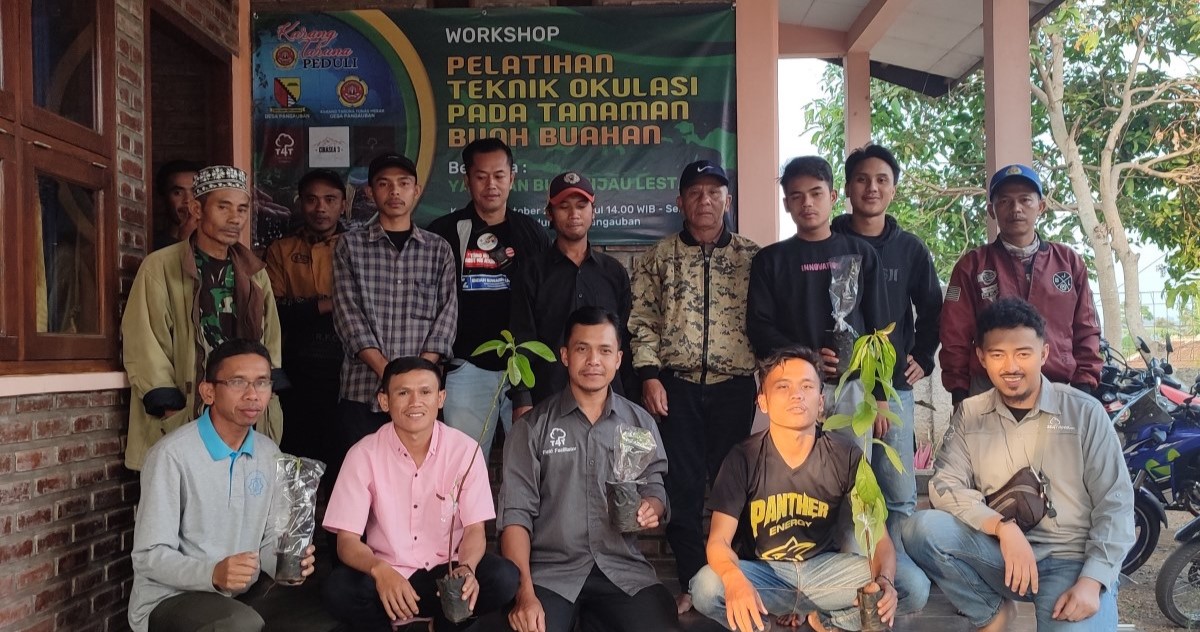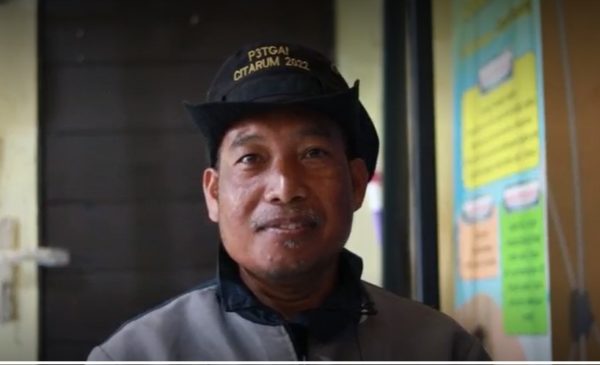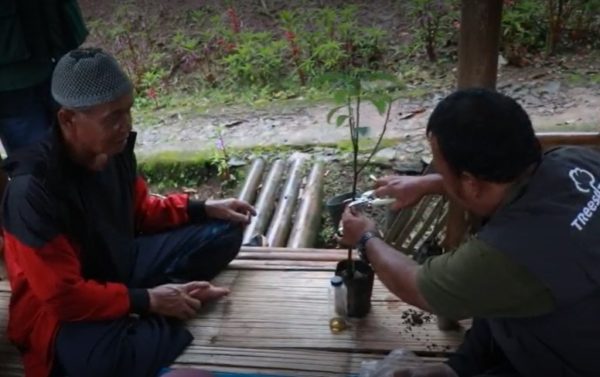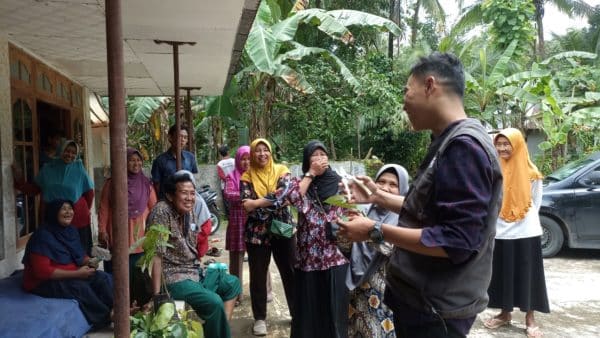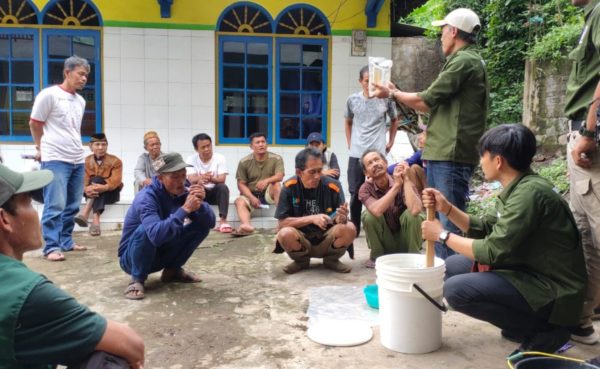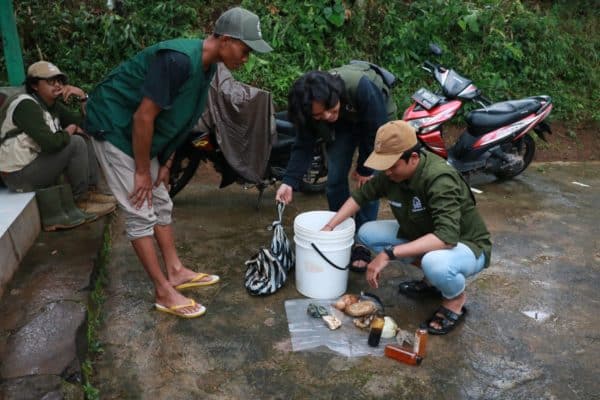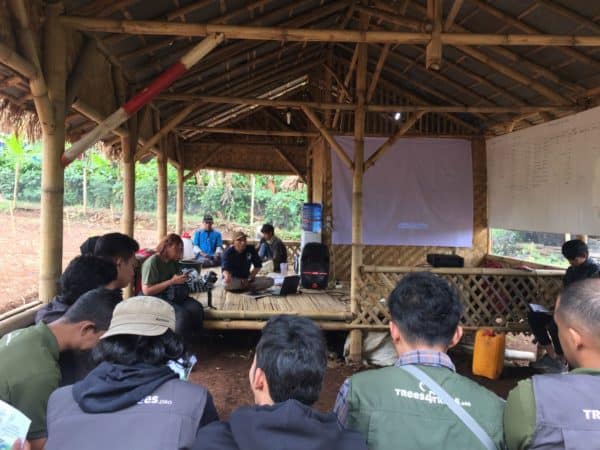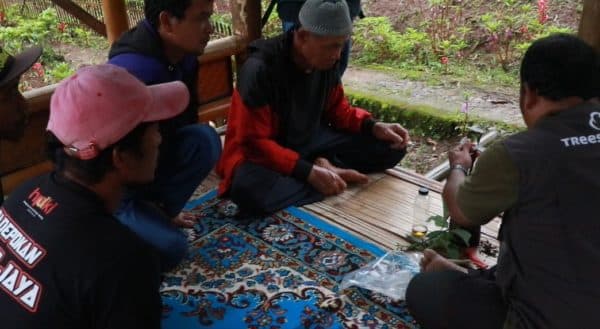Activity Highlights: Farmer Training Initiative to Empower Local Communities
In Trees4Trees‘ tree-planting operation, our focus includes empowering and encouraging local communities – our partners as tree growers – to implement environmentally friendly farming methods. By doing so, we anticipate that the farming activities will not harm the surrounding environment, while also potentially benefiting local communities through the products of the trees, such as fruits, leaves, or bark.
To achieve this goal, we conduct a series of farmer training sessions at each working site as part of our tree-planting initiatives. This year, various topics about organic farming methods have already been covered. These topics include how to make organic pesticide and herbicide, formulating liquid and granular organic fertilizers, and microbe’s decomposer.
Additionally, there are also topics related to the cultivation techniques, such as applying organic cultivation pattern, increasing timbers and multipurpose tree species productivity, grafting and plant propagation through cutting techniques, and best practices to cultivate fruit trees in organic ways.
Let’s delve into the recent establishment of Trees4Trees‘ farming training program!
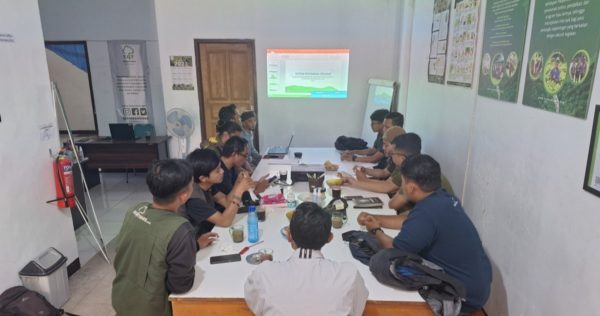
Our field team is at the forefront of engaging local communities to tree-planting programs. Trees4Trees held a Training of Trainers to enhance the understanding of organic farming methods among our field team before delivering the knowledge to the tree growers participating in the program. Our field team will continue to disseminate this knowledge to tree growers in each planting area through mentoring and hands–on practice.
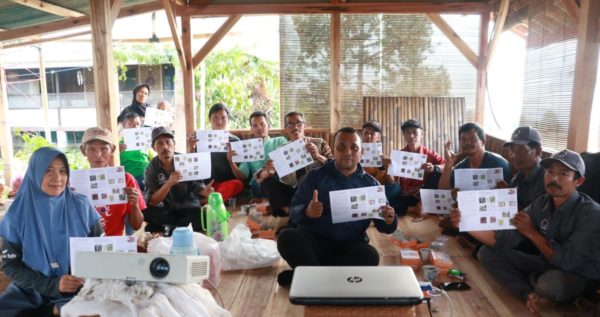
Trees4Trees provides its tree grower partners with brochures (above) and videos (below) as information and tutorial sources they can access for free. These information tools contain tutorials and steps in how to implement each organic farming method.
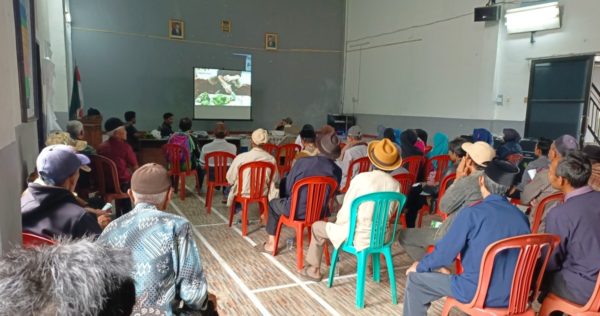
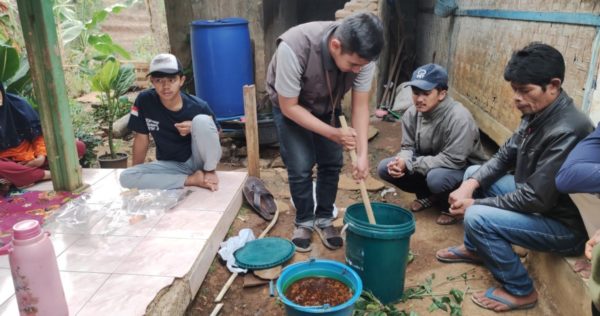
Organic biopesticide is useful to prevent and control pests and disease attack to the trees planted without leaving harmful residuals. Our field team showcases tutorials of organic biopesticide making in a hands-on practice to the local communities. The organic biopesticide is formulated from some tree leaves like suren, sirsak, and sirih leaves. They are mixed with turmeric, galangal, tobacco, molasses, and decomposer microbes.
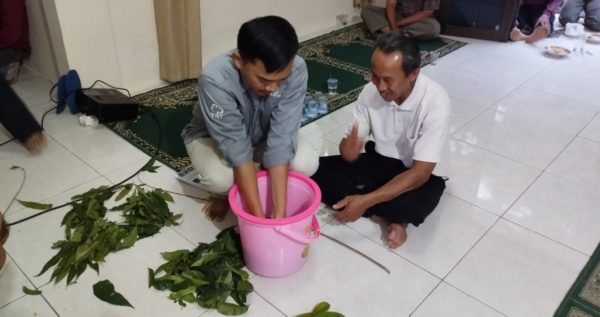
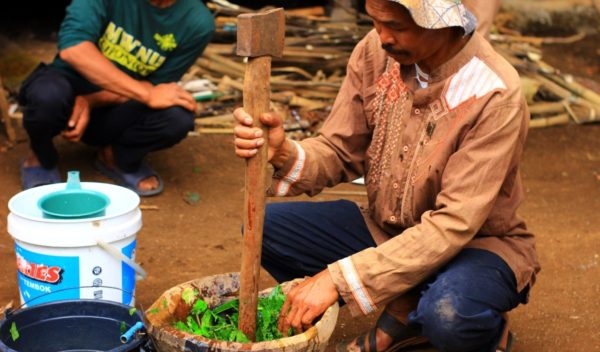
In the process of making organic biopesticides, three kinds of leaves; sirsak, suren, and sirih leaves need to be pounded before they are mixed with other ingredients. Local farmers are pounding them with a traditional pestle and mortar made from wood.
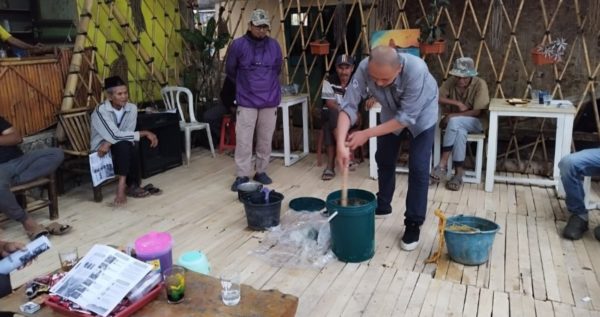
Fulfilling the high demand for knowledge about organic fertilizers in local communities, our field team conducts farming training on how to make organic liquid fertilizers. (Above) We utilize household waste like expired eggs and milk, rice washing water that are mixed with some other ingredients including sheep’s manure, volcanic ash, and spirulina. To apply this type of fertilizer, simply by spraying around the trunk of trees planted. (Below) The organic fertilizer training attracted many local people to directly witness the tutorials demonstration.
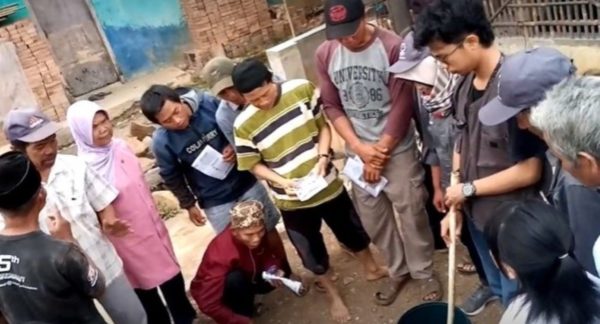
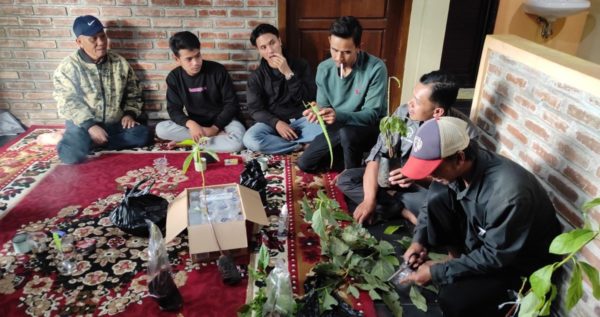
One of the farming training topics we cover is grafting techniques, a cultivation method that involves attaching one plant bud to another. This method aims to combine favorable characteristics from both plants to achieve a better variety of trees.
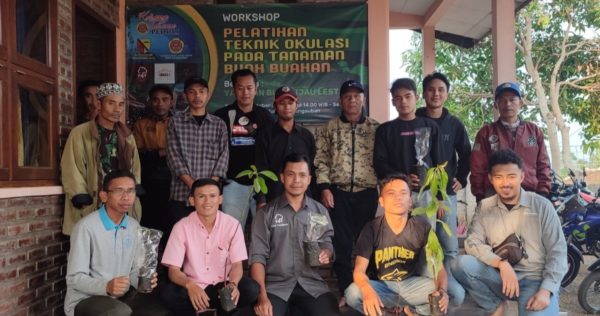
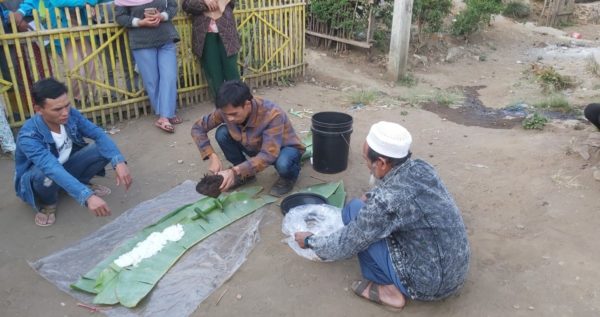
Decomposer microbes and soil fertilizers play a crucial role in the organic farming system due to their numerous functions in plants growth. They help compost plants and livestock waste to become nutrient for plants, reduce chemical waste in the soil, enhance soil fertility, and help to prevent pathogenic bacteria. Additionally, they significantly improve the chemical and biological function of soils. Considering these factors, we conduct training on decomposer microbe production using rotten rice, banana weevil, bamboo roots, molasse, and yeast that are fermented.
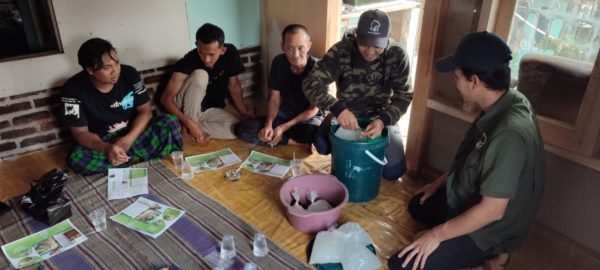
In one of our farmer training sessions, we presented a tutorial on making herbicide from organic ingredients, including coconut water, sugar, and yeast, followed by a fermentation process. Organic herbicide is useful for controlling and preventing weed growth that can disrupt the growth of trees.

